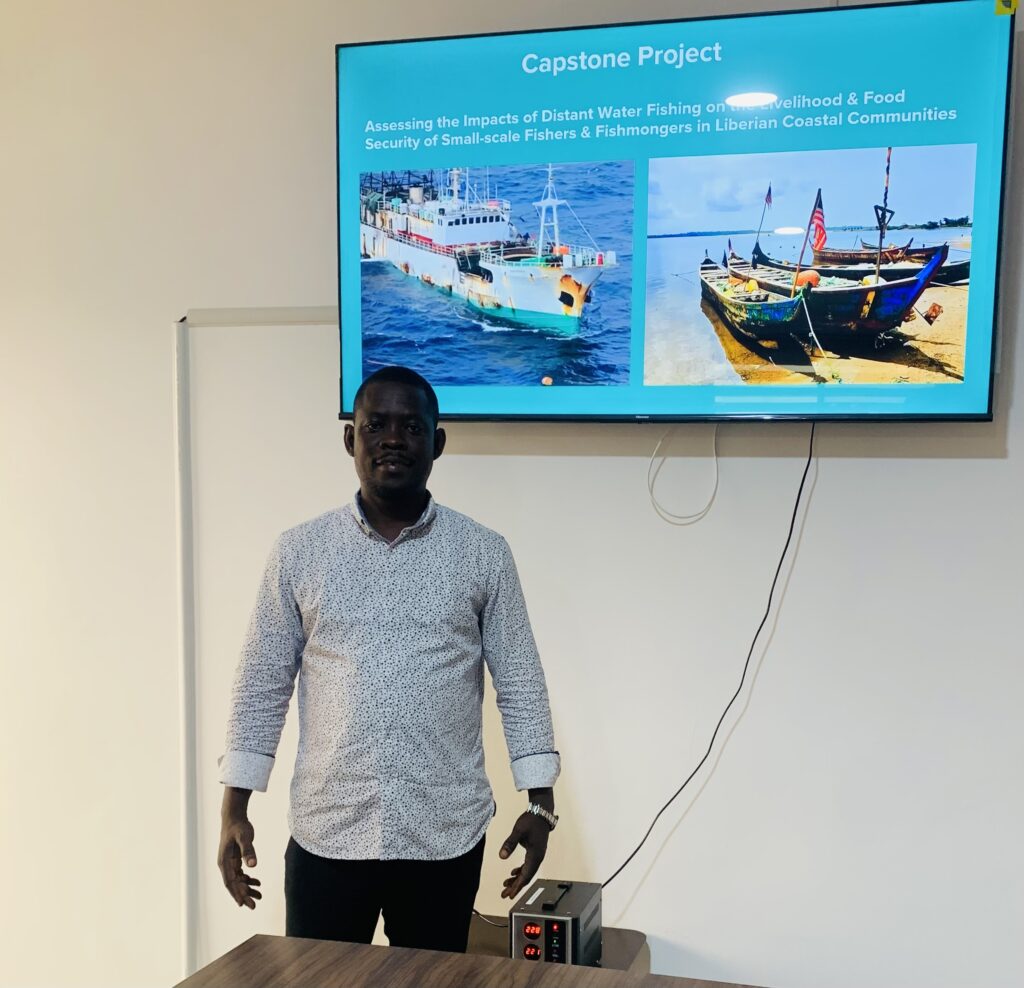Fisheries are a vital source of food and nutrition security and employment for tens of thousands of Liberians (upwards of 30,000 fishers and fish traders). This is particularly true for coastal communities and the small-scale fishing (SSF) sector or artisanal fishers who operate traditional canoes and open wooden boats. However, there has been a growing trend towards distant water fishing (DWF), where industrial foreign fishing vessels operate in Liberian waters, often with little oversight or regulation. While DWF can provide economic benefits for coastal States, it can also have negative impacts on marine ecosystems and fish stocks and the livelihoods and food security of local communities, especially when using indiscriminate fishing gear such as the primarily foreign-owned mid-water and bottom trawl fishery targeting shallow- and deep-water demersal fish species.
In a significant stride towards understanding and mitigating the impacts of distant water fishing on local coastal communities, Nathaniel I Kollie, a dedicated M.S. student in the Coastal Science & Policy Program at the University of California, Santa Cruz, embarks on a crucial capstone project generously funded by the Marine Conservation Action Fund (MCAF) of the New England Aquarium. This project focused on examining the direct and indirect impacts of distant water fishing (DWF) on local communities’ livelihood and food security in Liberia to inform recommendations for National Fisheries and Aquaculture (NaFAA) and other interested actors.
“I aim to do this through three objectives: 1. Compare the similarities in fish catch composition between the SSF sector and DWF, and 2. Identify the value chain, where the DWF catch was going when it landed in Liberia, and who has access to it. 3. Develop recommendations on reducing the impacts of DWF on marine ecosystems and coastal communities to strengthen livelihood and food security and protect the coastal environment. Assessment of these potential ecological, economic, and social costs and benefits is imperative to understand the overall impact of DWF in Liberia and to inform responsible, sustainable, and equitable policies. My Capstone project will contribute to an improved understanding of this situation to ensure the government and other relevant actors have the necessary information to respond to this urgent issue and protect and improve the food and livelihood security of the Liberian coastal population and the marine ecosystem upon which they closely depend.”
The project will officially be launched in mid-November 2024. The official launch date will be announced subsequently.

